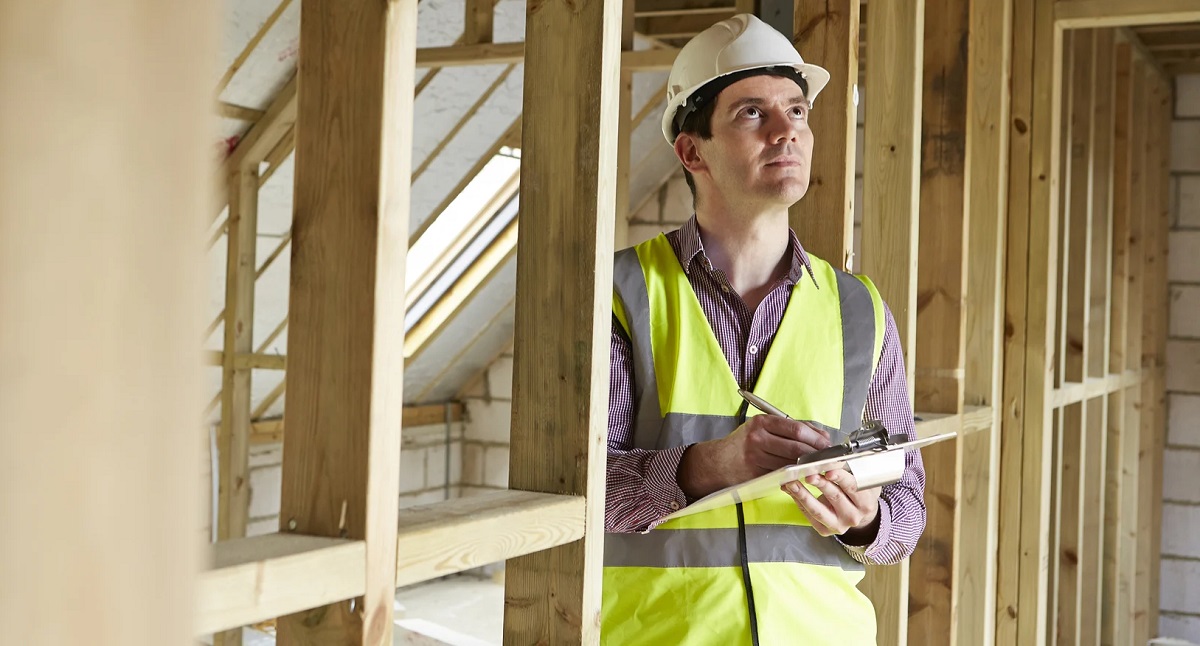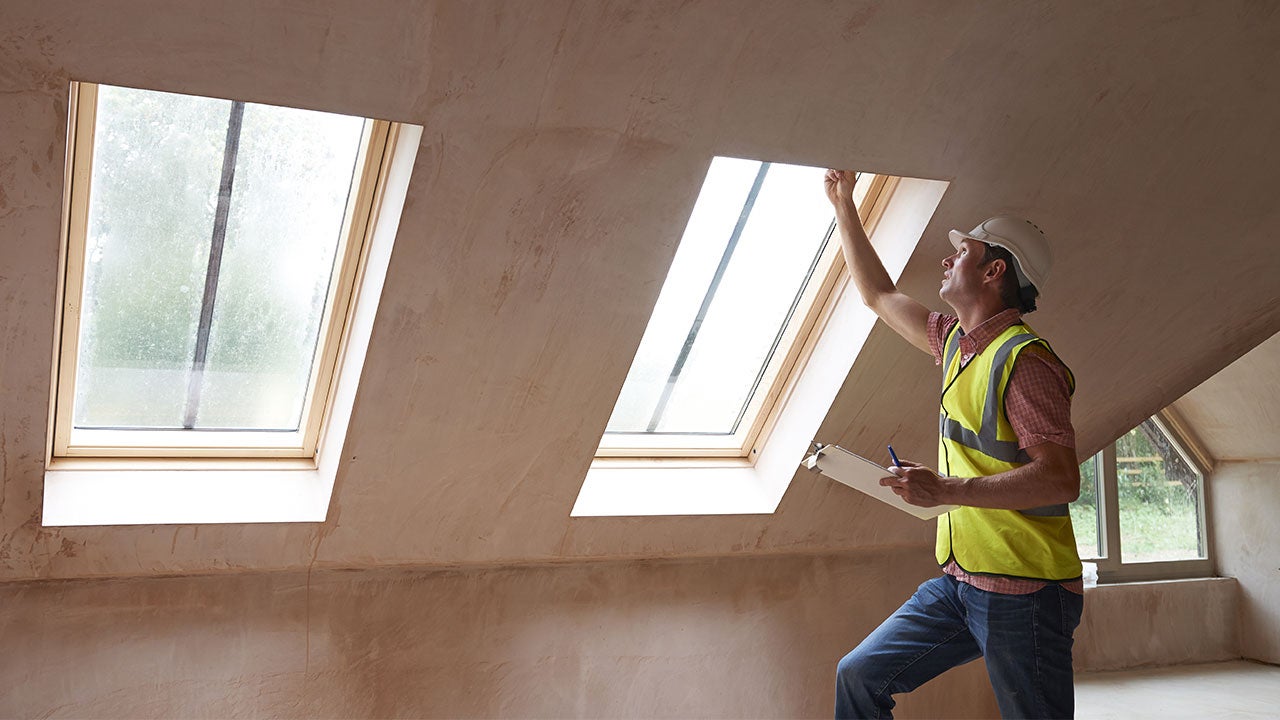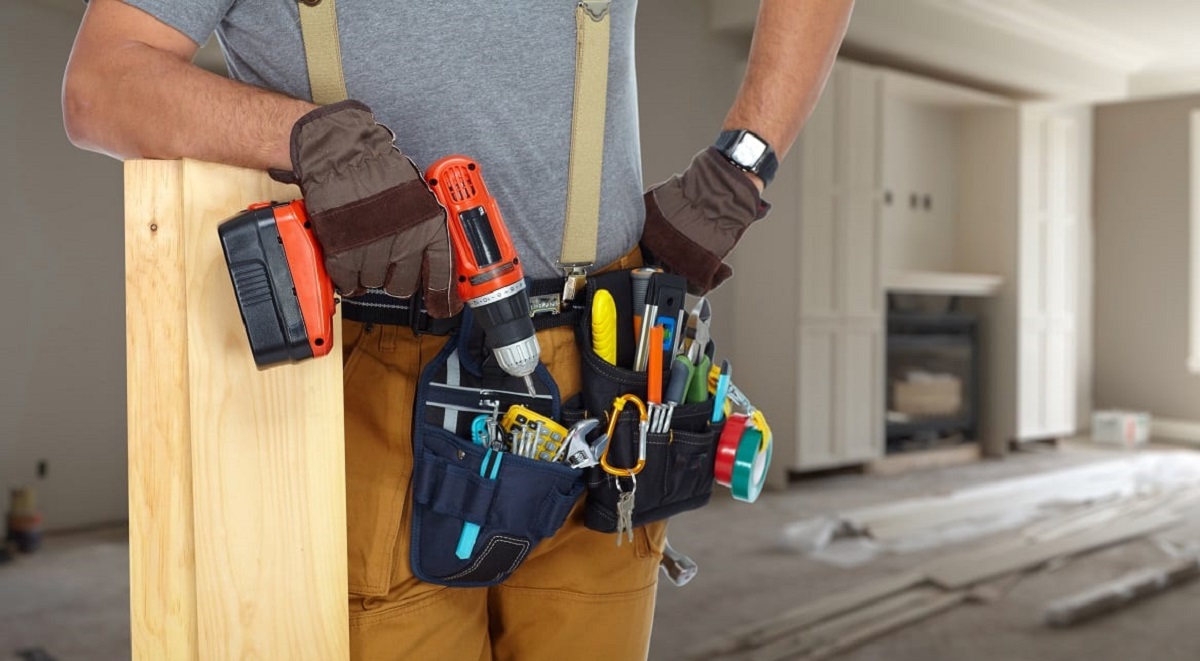Home>Home Maintenance>When Selling A House And An Inspection Is Being Done, Should The Buyers Be Present?


Home Maintenance
When Selling A House And An Inspection Is Being Done, Should The Buyers Be Present?
Modified: March 6, 2024
Discover if it's necessary for buyers to be present during a home inspection when selling a house. Learn about home maintenance and inspection processes.
(Many of the links in this article redirect to a specific reviewed product. Your purchase of these products through affiliate links helps to generate commission for Storables.com, at no extra cost. Learn more)
Introduction
When selling a house, one important step in the process is the home inspection. This is when a professional inspector thoroughly examines the property to assess its condition and identify any potential issues. While the sellers are often present during the inspection, one common question that arises is whether or not the buyers should also be present.
A home inspection is a crucial part of the buying process as it can uncover any hidden problems that may affect the value or safety of the property. It provides the buyers with an opportunity to gain a deeper understanding of the property’s condition and make informed decisions. However, it is ultimately up to the buyers to decide whether or not they want to be present during the inspection.
In this article, we will explore the importance of home inspections, discuss the role of buyers in the inspection process, and weigh the pros and cons of buyers being present during the inspection. We will also provide some factors to consider when deciding if buyers should be present and offer tips for buyers attending the inspection. Let’s dive in!
Key Takeaways:
- Buyers attending a home inspection can gain valuable knowledge, ask questions, and assess the property’s condition firsthand, but they should balance their emotions and respect the inspector’s work to make informed decisions.
- While attending a home inspection offers benefits like immediate clarification and trust-building, buyers should consider their availability, emotional attachment, and trust in the inspector to decide if their presence aligns with their preferences and goals.
Importance of Home Inspections
Home inspections play a crucial role in the real estate transaction process. They provide potential buyers with an in-depth assessment of the property’s overall condition and help identify any underlying issues that may not be visible to the untrained eye. Here are a few key reasons why home inspections are important:
- Identify Potential Problems: A comprehensive home inspection can uncover hidden problems such as structural issues, faulty electrical systems, plumbing leaks, or mold infestations. By discovering these issues early on, buyers can make informed decisions about the purchase and negotiate repairs or price adjustments with the seller.
- Evaluate Safety Hazards: Home inspections help identify potential safety hazards within the property. This includes checking for the presence of radon gas, carbon monoxide leaks, or faulty wiring that could pose a risk to the occupants. Knowing about these hazards allows buyers to take appropriate measures to mitigate any potential dangers.
- Assess Overall Condition: Inspections provide buyers with a detailed understanding of the property’s overall condition, including the age and condition of its major systems and components. This information helps buyers plan for future maintenance and estimate the costs involved.
- Negotiating Tool: The findings of a home inspection report can be used as a negotiating tool during the buying process. If significant issues are uncovered, buyers can request repairs or a reduction in the purchase price based on the estimated cost of addressing those issues.
- Peace of Mind: Knowing that a thorough inspection has been conducted can provide buyers with peace of mind, helping them feel more confident in their purchasing decision. It allows them to move forward with the transaction with a clear understanding of the property’s condition.
Overall, home inspections are invaluable in providing buyers with an objective evaluation of the property’s condition and potential issues. They serve as a safeguard against unexpected surprises and offer buyers the opportunity to make an informed decision based on accurate information.
Role of Buyers in the Inspection Process
Buyers have a crucial role to play in the home inspection process. While it is not mandatory for buyers to be present during the inspection, their participation can offer several benefits. Here’s a closer look at the role of buyers in the inspection process:
- Gaining First-hand Knowledge: Being present during the inspection allows buyers to gain first-hand knowledge about the property’s condition. They can observe the inspector’s assessment, ask questions, and receive explanations about any issues or concerns that arise. This direct interaction can provide a deeper understanding of the property’s strengths and weaknesses.
- Addressing Immediate Concerns: If buyers have specific concerns about the property, being present during the inspection provides an opportunity to address them. They can point out areas of interest to the inspector, ask for additional tests or investigations, or seek clarification on any aspects of the property’s condition that may be unclear.
- Asking Relevant Questions: Being present during the inspection allows buyers to ask questions directly to the inspector. They can inquire about the functionality of specific systems or components, seek recommendations for maintenance or repairs, and gather valuable insights into how to care for the property properly.
- Evaluating the Property’s Potential: By observing the inspection process, buyers can assess the property’s potential based on the inspector’s findings. They can weigh the identified issues and necessary repairs against their overall vision for the property, helping them determine if it aligns with their needs and expectations.
- Building a Relationship with the Inspector: Attending the inspection allows buyers to establish a relationship with the inspector. This can prove beneficial as the inspector can provide ongoing guidance and support, even after the inspection is complete. Buyers can rely on the inspector’s expertise to address any post-inspection concerns or to recommend reliable contractors for repairs or future maintenance.
While buyers being present during the inspection offers several advantages, it is essential to note that they must respect the inspector’s work. They should avoid interfering with the inspection process or distracting the inspector from their duties. Buyers should use their presence as an opportunity to gather information and make informed decisions rather than obstructing the inspection.
Ultimately, the decision whether or not to be present during the inspection is up to the buyers. However, considering the potential benefits, it is worth considering attending the inspection to actively participate in the process and gather valuable insights about the property.
Pros of Buyers Being Present During Inspection
While it is not mandatory for buyers to be present during a home inspection, there are several advantages to consider. Here are some of the key benefits of buyers being present during the inspection:
- Visual Understanding: Being present during the inspection allows buyers to visually understand the inspector’s findings. They can see firsthand any issues or concerns pointed out by the inspector, which helps them gain a clearer understanding of the property’s condition.
- Immediate Clarification: Buyers have the opportunity to ask questions and seek immediate clarification from the inspector. This helps avoid any miscommunication and ensures that buyers fully understand the implications of the inspector’s findings.
- Real-Time Assessment: Buyers can witness the inspector’s real-time assessment of the property. They can observe how the inspector tests various systems and components, providing them with a more comprehensive understanding of the property’s functionality.
- Identifying Priority Repairs: By being present, buyers can gain insights into which issues are more critical and require immediate attention. This helps them prioritize necessary repairs and assess the associated costs, which can be valuable when negotiating with the seller.
- Generating Trust and Confidence: Attending the inspection demonstrates buyers’ commitment and genuine interest in the property. It shows the seller that the buyers are actively engaged in the process and serious about their potential purchase. This can help build trust and confidence between the parties involved.
- Learning about Maintenance: Buyers can gather valuable information about the property’s maintenance requirements. They can learn about routine maintenance tasks, potential red flags to watch for, and best practices for preserving the property’s condition. This knowledge can be immensely helpful in maintaining the property after the purchase.
While these advantages highlight the benefits of buyers attending the inspection, it is important to remember that buyers should respect the inspector’s space and professionalism. They should focus on observation and gathering information rather than interfering with the inspector’s work. Additionally, buyers should be prepared to balance their expectations with the inspector’s findings and exercise rational decision-making throughout the process.
Attending the inspection can be a valuable experience for buyers, providing them with crucial insights into the property’s condition and helping them make informed decisions. However, it is ultimately up to the buyers to determine if their presence during the inspection aligns with their preferences and needs.
It’s not necessary for the buyers to be present during the inspection, but it can be helpful for them to understand any issues firsthand. They can also ask the inspector questions and gain a better understanding of the property.
Cons of Buyers Being Present During Inspection
While there are clear advantages to buyers being present during a home inspection, it is important to consider the potential drawbacks as well. Here are some notable cons of buyers being present during the inspection:
- Emotional Attachment: Being present during the inspection can sometimes lead buyers to develop an emotional attachment to the property. This emotional bias may cloud their judgment and influence their decision-making process, potentially leading to impulsive or uninformed choices.
- Interference with the Inspector: Buyers who are present during the inspection must be cautious not to interfere or distract the inspector. Engaging in unnecessary conversation or continuously questioning the inspector’s every move can disrupt their concentration and potentially compromise the quality of their work.
- Subjectivity in Perception: Different buyers may interpret the same inspection findings differently based on their individual perceptions and understanding. This subjectivity can sometimes lead to disagreements or misunderstandings about the significance or severity of identified issues.
- Inflated Repair Demands: Buyers present during the inspection may become overly fixated on minor issues and demand repairs that might not be deemed necessary by the seller or their agent. This can create obstacles during negotiations and potentially sour the relationship between the parties involved.
- Overwhelming Information: Home inspections can provide a wealth of information about the property, including minor issues or general wear and tear. Being present during the inspection may overwhelm some buyers with excessive details, making it challenging to sort out the significant concerns from the less consequential ones.
- Time Constraints: Attending a home inspection can be time-consuming, especially if the property is sizable or has extensive features to examine. Buyers should allocate sufficient time for the inspection, which may require taking time off work or rearranging other commitments.
It is important for buyers to approach the inspection process with a level-headed and objective mindset. While being present during the inspection can be beneficial, buyers must strike a balance between gaining valuable insights and not letting their emotions or biases dictate their decisions.
Ultimately, the decision of whether or not to be present during the inspection is a personal one for buyers to make. It is important to weigh the advantages and disadvantages, consider individual circumstances, and determine what aligns best with their preferences and goals.
Factors to Consider when Deciding if Buyers Should be Present
Deciding whether or not to be present during a home inspection is a personal choice for buyers. There are several factors to consider when making this decision. Here are some important considerations:
- Level of Knowledge: Buyers with limited knowledge of home systems and components may benefit from being present during the inspection. It allows them to learn about the property’s condition, ask questions, and gain a better understanding of any identified issues.
- Availability: Buyers must consider their own availability when deciding whether or not to attend the inspection. Attending the inspection requires setting aside a significant amount of time, which may not be feasible for everyone due to work or other commitments.
- Emotional Attachment: Emotional attachment to the property can influence a buyer’s judgment during the inspection. If buyers find it challenging to remain objective and make rational decisions, it may be best to refrain from being present during the inspection to prevent any undue influence.
- Trust in the Inspector: Buyers must have confidence in the professionalism and expertise of the chosen inspector. If buyers have full trust in the inspector’s abilities and feel comfortable relying solely on the inspection report, being present during the inspection may not be necessary.
- Desire for First-hand Experience: Some buyers prefer to have a firsthand experience of the inspection process and witness the inspector’s findings in real-time. This allows them to gather more detailed information and assess the property’s condition on their own.
- Complexity of the Property: The complexity of the property can also be a factor in deciding whether buyers should attend the inspection. If the property has unique features, specialized systems, or is older, being present during the inspection can provide buyers with valuable insights that may not be adequately captured in the inspection report.
- Communication Preferences: Buyers with strong communication preferences may find it valuable to be present during the inspection. It allows them to directly interact with the inspector, ask questions, seek clarification, and get a more personalized understanding of the property’s condition.
Considering these factors can help buyers make an informed decision about their presence during the inspection. It is essential for buyers to weigh their knowledge, availability, emotional attachment, trust in the inspector, desire for firsthand experience, complexity of the property, and communication preferences when making their choice.
Remember, whether buyers choose to be present or not, it is always recommended to carefully review the inspection report and consult with professionals to fully understand the condition of the property and make informed decisions accordingly.
Tips for Buyers Attending the Inspection
If buyers decide to attend the home inspection, there are several tips to keep in mind. Here are some helpful suggestions to maximize the experience:
- Come Prepared: Before attending the inspection, review any available information about the property, such as previous inspection reports or disclosures. This will help you ask relevant questions and have a better understanding of what to expect.
- Respect the Inspector’s Work: While it’s important to be present, avoid interfering with or distracting the inspector during their work. Allow them to focus on their assessment and complete their tasks without unnecessary interruptions.
- Take Notes: Bring a pen and paper or use a note-taking app on your phone to jot down important details, observations, and any questions you may have during the inspection. This will help you remember key points for future reference.
- Ask Questions: Don’t hesitate to ask the inspector questions about the property’s condition, maintenance requirements, or any concerns you may have. The inspector’s expertise can provide valuable insights and help you make informed decisions.
- Focus on Major Issues: Pay attention to the major issues identified during the inspection, such as structural concerns, electrical or plumbing problems, or safety hazards. Understanding the severity of these issues will help you prioritize repairs or negotiate with the seller.
- Balance Your Expectations: Keep in mind that no property is perfect, and even new homes can have minor issues. It’s important to balance your expectations and differentiate between major issues that need immediate attention and minor ones that can be addressed over time.
- Document Visual Evidence: If the inspector identifies any issues, consider taking photos or videos as visual evidence. This documentation can be useful for future reference or when discussing repairs or negotiations with the seller.
- Stay Engaged and Curious: Stay actively engaged during the inspection process, asking questions and seeking clarification whenever necessary. Be curious about the property’s condition and use this opportunity to gain valuable knowledge about maintenance and care.
- Be Realistic: Keep in mind that a home inspection is a snapshot of the property’s condition at a specific point in time. It may highlight areas of concern, but it cannot predict future issues. Be realistic in your expectations and evaluate the overall condition of the property with the help of the inspection report.
- Review the Inspection Report: After the inspection, carefully review the inspection report in detail. If there are any areas or findings you do not understand, reach out to the inspector for clarification. Use the report as a valuable resource for making informed decisions about the property.
By following these tips, buyers can make the most out of attending the home inspection. Remember, the primary goal is to gather essential information about the property’s condition and make informed decisions based on the inspector’s findings.
Always consult with qualified professionals and consider their advice when making any decisions related to the inspection report or the property’s condition.
Conclusion
When it comes to deciding whether or not buyers should be present during a home inspection, there are pros and cons to consider. Ultimately, the choice is up to the buyers and what aligns best with their preferences and circumstances.
Home inspections are an essential step in the home-buying process. They provide buyers with valuable insights into the property’s condition, uncover potential issues, and assist in making informed decisions. While being present during the inspection offers benefits such as gaining first-hand knowledge, addressing immediate concerns, and building a relationship with the inspector, there are also drawbacks to keep in mind. These include emotional attachment, potential interference with the inspector, and subjectivity in perception.
Factors such as the buyers’ level of knowledge, trust in the inspector, availability, and desire for a first-hand experience should be considered when making the decision. It is important for buyers to strike a balance between gathering valuable insights and avoiding potential biases or distractions.
If buyers choose to attend the inspection, there are tips to enhance the experience, such as coming prepared, respecting the inspector’s work, taking notes, asking questions, and balancing expectations. Attending the inspection allows buyers to actively participate in the process and gather valuable information about the property’s condition and maintenance requirements.
Whether buyers attend the inspection or rely solely on the inspection report, it is crucial to carefully review and understand the findings. Consultation with professionals, such as real estate agents or contractors, can provide additional guidance and ensure informed decision-making.
In conclusion, the decision of whether or not buyers should be present during a home inspection depends on individual circumstances and preferences. It is important for buyers to consider the pros and cons, weigh the factors involved, and make a choice that aligns with their goals and level of comfort. A well-executed home inspection, coupled with informed decision-making, sets the stage for a successful home purchase and a confident investment in the future.
Frequently Asked Questions about When Selling A House And An Inspection Is Being Done, Should The Buyers Be Present?
Was this page helpful?
At Storables.com, we guarantee accurate and reliable information. Our content, validated by Expert Board Contributors, is crafted following stringent Editorial Policies. We're committed to providing you with well-researched, expert-backed insights for all your informational needs.















0 thoughts on “When Selling A House And An Inspection Is Being Done, Should The Buyers Be Present?”